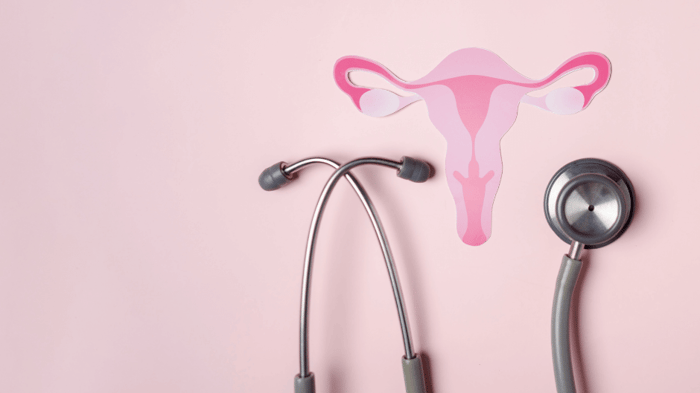One of the most common—and often least discussed—symptoms of menopause is vaginal dryness. For many women, it’s more than just physical discomfort. Vaginal dryness can impact intimacy, self-esteem, daily comfort, and even overall quality of life.
If you’re wondering, “How long does menopausal vaginal dryness last?”—you’re not alone. While hot flashes and mood swings often fade with time, vaginal dryness is a different story. This article explores how long dryness tends to last, why it can persist long after menopause, and what you can do to support long-term vaginal health.
What Causes Menopausal Vaginal Dryness?
Vaginal dryness during menopause happens for one main reason: declining estrogen. This hormone plays a central role in maintaining vaginal lubrication, tissue elasticity, and thickness. When estrogen levels drop during perimenopause and menopause, changes begin in the vaginal environment:
-
Reduced lubrication → natural moisture production decreases.
-
Thinner vaginal lining → less elasticity and more sensitivity.
-
Weakened blood flow → less nourishment for vaginal tissues.
Together, these changes are referred to as Genitourinary Syndrome of Menopause (GSM). Unlike other menopause symptoms, GSM can persist indefinitely if not managed, which explains why vaginal dryness often feels never-ending.
How Long Does Vaginal Dryness Last After Menopause?
The straightforward answer: for many women, vaginal dryness is long-term.
Short-Term vs. Long-Term Symptoms
-
Hot flashes, night sweats, mood swings: often improve within 5–7 years after menopause.
-
Vaginal dryness: may persist indefinitely, even into late postmenopause.
Why It Persists
Once estrogen levels stabilize at their new, lower baseline after menopause, the vaginal tissues do not naturally regain their former thickness or lubrication. This means dryness typically does not resolve on its own.
Realistic Timeline
-
Perimenopause (ages 40–50): dryness begins gradually, often mild at first.
-
Early menopause (ages 50–55): symptoms intensify as estrogen drops sharply.
-
Postmenopause (55+): dryness tends to remain stable but chronic, unless addressed.
Key takeaway: Vaginal dryness doesn’t follow the same timeline as hot flashes. Without intervention, it may last the rest of a woman’s life.
Does Vaginal Dryness Go Away on Its Own?
Unlike other symptoms that naturally fade, vaginal dryness is usually persistent. Studies show that more than 50% of postmenopausal women experience ongoing vaginal dryness years after their last menstrual period.
Why doesn’t it go away? Because the underlying cause—reduced estrogen—remains permanent after menopause. Once the ovaries stop producing estrogen, the body doesn’t restart natural vaginal lubrication without some type of support.
That’s why medical experts emphasize that vaginal dryness is not just a passing inconvenience. It’s a manageable but ongoing part of postmenopause.
Factors That Influence How Long Vaginal Dryness Lasts
Not every woman experiences dryness in the same way. Several factors determine how severe and long-lasting it may be:
Hormonal Sensitivity
Some women are more sensitive to hormonal changes. Even small declines in estrogen can trigger pronounced vaginal dryness.
Medical History
-
Hysterectomy or oophorectomy (surgical removal of the ovaries) accelerates the onset.
-
Cancer treatments, such as chemotherapy or radiation, often intensify or prolong dryness.
Lifestyle Choices
-
Smoking reduces circulation, worsening dryness.
-
Low hydration or poor nutrition may intensify vaginal tissue changes.
-
Chronic stress disrupts hormonal balance, indirectly affecting vaginal health.
Genetics and Individual Variation
As with most menopause symptoms, genetics plays a role. If your mother or sisters experienced long-term dryness, you may be predisposed as well.
Why Addressing Vaginal Dryness Matters
It’s tempting to ignore vaginal dryness or assume it’s an inevitable part of aging. But left untreated, it can lead to:
-
Painful intercourse (dyspareunia).
-
Increased risk of infections (thinner vaginal tissue = more vulnerable to bacteria).
-
Decreased sexual satisfaction for both partners.
-
Lower self-esteem and confidence.
The good news? With the right approach, vaginal dryness doesn’t have to define your postmenopause years.
Managing and Relieving Vaginal Dryness Naturally
There are multiple ways to manage vaginal dryness—without relying on hormones if that’s your preference.
Vaginal Moisturizers vs. Lubricants
-
Moisturizers: Used regularly, they hydrate tissues for lasting relief.
-
Lubricants: Applied before intercourse for temporary comfort.
Both can be part of a holistic routine, but they don’t always solve the root cause.
Plant-Based Supplements
One promising option is She Juicy, a supplement designed to naturally support vaginal moisture. Unlike lubricants, which only work in the moment, She Juicy helps nourish the vaginal mucosa from within. Its hero ingredient, Slippery Elm Bark, is rich in mucilage, antioxidants, and minerals that help restore hydration and comfort.
Lifestyle Habits That Support Vaginal Health
-
Stay hydrated throughout the day.
-
Include foods high in omega-3s (chia seeds, salmon, walnuts).
-
Practice pelvic floor exercises to improve blood flow.
-
Reduce caffeine and alcohol, which can dehydrate tissues.
Long-Term Strategies for Vaginal Health After Menopause
Relief from vaginal dryness isn’t about a one-time fix—it’s about ongoing care.
Build a Sustainable Wellness Routine
Consistency matters. Just as you wouldn’t expect your skin to stay moisturized after one lotion application, vaginal health requires daily care.
Sexual Activity Matters
Regular sexual activity—whether with a partner or through self-stimulation—encourages blood flow and maintains vaginal elasticity. This can reduce discomfort and help sustain natural lubrication.
Integrate Supplements Into Daily Life
Supplements like She Juicy work best when taken consistently. Within weeks, many women notice a difference, but long-term use helps maintain hydration and comfort.
Work With Your Healthcare Provider
If natural methods don’t provide full relief, your doctor may suggest additional non-hormonal or localized treatments.
FAQs: Vaginal Dryness and Menopause
How long does menopausal vaginal dryness last if untreated?
It can last indefinitely. Unlike hot flashes, which usually fade, dryness often persists into late postmenopause.
Is vaginal dryness permanent after menopause?
Yes, unless treated. The underlying hormonal change is permanent, but symptoms can be managed effectively.
Can vaginal dryness improve naturally without hormones?
Yes. Many women find relief with lifestyle changes, natural supplements, and consistent vaginal care routines.
What’s the difference between vaginal dryness and vaginal atrophy?
Vaginal dryness is one symptom of vaginal atrophy (GSM), which also includes thinning tissue, reduced elasticity, and discomfort during sex.
What’s the best natural option for long-term relief?
Supplements like She Juicy, combined with hydration, pelvic exercises, and moisturizers, can offer lasting results.
Conclusion
So, how long does menopausal vaginal dryness last? For many women, the reality is that it doesn’t fade away on its own. It may persist long after other menopause symptoms disappear—but that doesn’t mean you have to accept it as your “new normal.”
By understanding the long-term nature of vaginal dryness and taking proactive steps to manage it, you can enjoy comfort, confidence, and intimacy at every stage of life.
At Flower Power®, we believe that every woman deserves to feel empowered, sexy, and comfortable—without shame. If you’re ready to support your vaginal health naturally, explore She Juicy, a hormone-free supplement designed to bring back your body’s natural moisture and keep you feeling juicy for the long haul.










